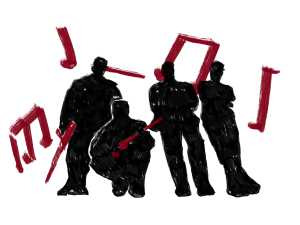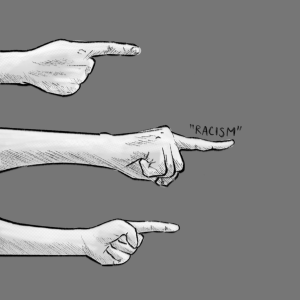Addressing Antisemitism in the Age of Social Media
January 16, 2023
What is antisemitism? As defined by the Holocaust Remembrance Alliance, antisemitism is “a certain perception of Jews, which may be expressed as hatred toward Jews.” However, it’s important to point out that critiques of the Israeli government and its actions are not antisemitic, but many hateful attacks against Israel and its people tend to perpetuate antisemitic rhetoric. With the rise of social media, modern antisemitism takes a new form: the ability to post antisemitic ideas that achieve millions of interactions worldwide.
So how have we typically addressed antisemitic speech? In the age of social media, it’s a struggle to combat this hateful speech online. You can condemn it and implore the comments to be taken down, or you ignore it and not give hateful people attention. However, it’s a predicament; censoring this speech can be perceived as “the Jewish controlled media is at it again,” or you let the comments stand, leading to immeasurable negative interactions and future harm. The first step is differentiating between the comment and the individual.
The most prevalent example is Ye. In the past several months, Ye has done nothing but spew antisemitic rhetoric on social media, to former president Donald Trump, and on Nick Fuentes’ and Alex Jones’ right-wing podcasts. Instagram and Twitter timelines are filled with statements like “Wow, Ye has completely gone insane this time,” “The fall of Ye must be studied by our children in the future,” or even, “Can’t believe divorce really did this to the man.” In these statements, there’s far too much “Ye” and far too little condemnation of the speech itself.
It’s a dangerous game to play; it’s setting the precedent that those with some higher level of social capital are exempt from their words and actions. Beyond Ye and social media, antisemitic jokes perpetuating harmful stereotypes by Dave Chappelle during his hosting of SNL were defended, since “Dave Chappelle always makes people mad.” As such, it’s not a surprise that antisemitic behavior on social media and in real life has skyrocketed, and there isn’t anyone saying it’s wrong. Antisemites are emboldened by the lack of critical response to the speech itself: in October and November, antisemitic incidents reported by the Anti-Defamation League rose by 160% from July and August.
So how can we end this? The first step is differentiating between the comment and the individual. Especially in terms of non-political public figures, it shouldn’t matter who they are or what their intent was. For those who use antisemitism as a ploy for social growth, the easiest way to ignore the stunt is to shut down the comments themselves. Not only does this mitigate the word-for-word impact of the speech on Jews, but it also steers the conversation away from the individual behind the hateful words. We would no longer be giving them a platform to continuously spread this hateful rhetoric. Additionally, simple condemnations of antisemitic comments can shift focus away from a celebrity and create an opportunity to provide a sobering history lesson about the Holocaust and the history of Jewish oppression. Anyone can help in this process. It’s as simple as calling out hate speech when you see it and sticking by values of morality and history instead of participating in the game of social capital.
This article also appears in our December 2022 print edition.











